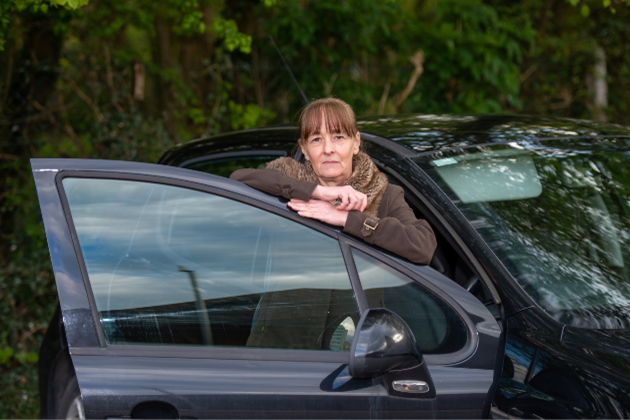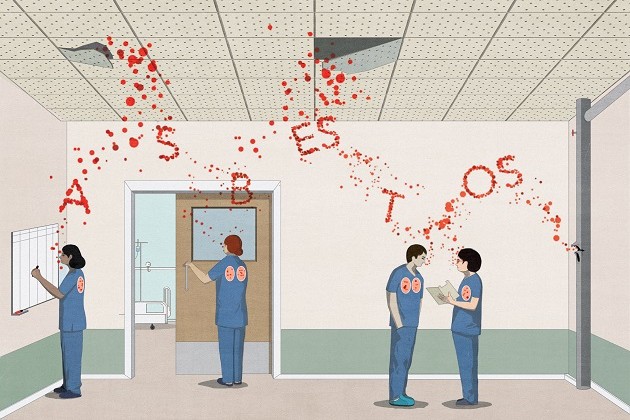Parking fines. They’re the last thing you need at the best of times. But when you’re physically and emotionally exhausted after working gruelling shifts in a pandemic, getting one can be crushing.
How about getting 15 fines, issued without evidence of what you did wrong by the company who manages your workplace car park? How might you feel then? Irritated? Angry? Or just broken?
Bank nurse Helen Monday felt infuriated. For two years she’d become increasingly incensed by the practices of Parking Eye, which oversees the car parks for United Lincolnshire Hospitals NHS Trust.
It’s extra stress staff don’t need at a time when working life is more stressful than ever
She fumed as she and other colleagues got hit with fine, after fine, after fine. Sometimes it was claimed they’d parked in a drop-off zone, other times that they’d parked without a staff permit. Each time they got issued with a £70 fine.
Late last year she decided to act. “It got to the point that staff were worried about driving to work for fear of being fined,” she says.
“The company uses cameras with automatic number plate recognition, but they’re notoriously faulty and don’t cover parts of the car park where the alleged offences happen.
"So, they write to people, I believe at random, saying they’ve parked where they shouldn’t. But the only evidence they have is photos of you driving in and out of the car park.
“You can appeal the fines, and many people successfully do, but that’s not the point. They shouldn’t be issued in the first place. It’s extra stress staff don’t need at a time when working life is more stressful than ever.
"For those who don’t have the energy to fight, they just pay the fine. It’s taking advantage of vulnerable people and it’s wrong on so many levels.”
It got to the point that staff were worried about driving to work for fear of being fined
Taking it to the top
In December, Helen wrote directly to the trust's chief executive but was less than impressed by his response. “He thanked me for ‘sharing my thoughts’ and brushed me off,” Helen recalls.
“I wasn’t sharing my thoughts. I was raising issues that were concerning everybody at the trust. He should be supporting his staff, not causing extra stress they don’t need.”
Helen continued to gather evidence, using the trust’s Facebook group to find people who’d had their fines overturned on appeal, while fighting tricky appeal cases directly with the head of Parking Eye.
She also contacted the media and reached out for support from the RCN when local press took up the story. “All of a sudden, I became worried about putting my head above the parapet,” she says.
“It’s why nursing staff put up with so much, for so long. They want to speak up about injustice, but they don’t want to risk their job. I felt that I needed to fight but I needed my union by my side to make sure I went about it the right way.”
Helen rang the RCN advice team and was referred to her regional office. Senior RCN Officer Marie Hannah reviewed the case and was instantly struck by the opportunity to do something different.
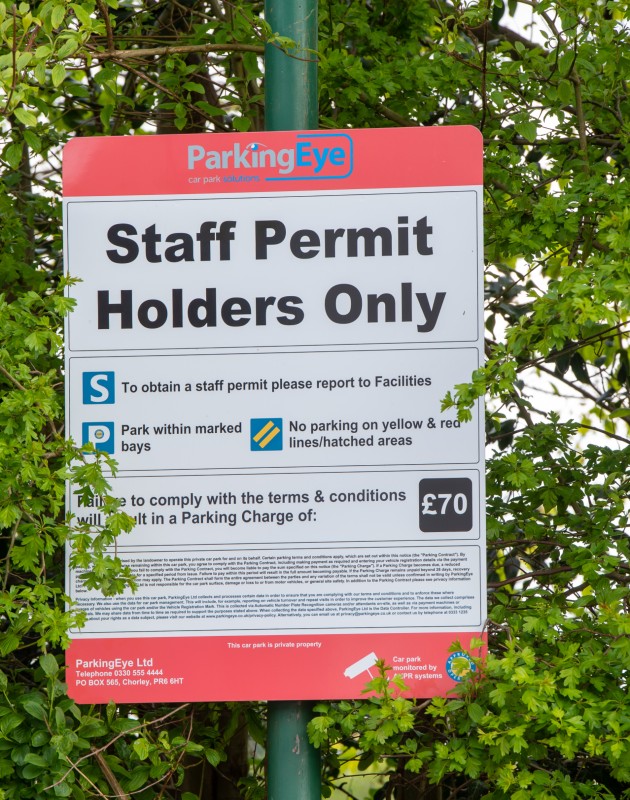 “This wasn’t a grievance with the employer as such, so a traditional trade union approach didn’t seem right,” Marie says.
“This wasn’t a grievance with the employer as such, so a traditional trade union approach didn’t seem right,” Marie says.
“Instead, I thought we could try and apply pressure in a different way, by working with Helen to grow support for demanding action. We knew that if she felt so passionately about it, other members would feel the same, and together we could make something happen.”
The East Midlands regional team worked with Helen to suss out next steps, drawing on different staff members’ skills and experience to take things forward. She was supported by an RCN officer who works on cases at the trust, had media training from the regional communications manager, and worked alongside an RCN organiser, to build connections with other members affected.
As part of this, an email was sent to all RCN members working at the trust to find out more about the parking issues, and crucially, who might be willing to join the fight.
I thought we could try and apply pressure in a different way
The case became a classic example of organising, with Helen identified as the leader of a winnable issue in which human testimony would prove the most powerful tool.
“We had more than 30 members respond to that one email,” says RCN Organiser Sarah-Leigh McMahon. “They highlighted wider issues with parking at the trust – poor lighting, lack of security, potholes, insufficient spaces. It became as much an issue of staff safety as it was about parking fines.”
From that point the team dug a little deeper, further communicated with the members and asked them if they were willing to form a group to take action.
“In organising terms, we talk about taking an action on someone – in this case the trust's chief executive – so we were looking for people who wanted to meet him, put their points directly across, and see if we could get a commitment from him to do something about the parking,” says Sarah-Leigh.
It was our members who directed what happened. They spoke really powerfully about how the issue was affecting them
People power
The RCN requested the meeting and helped build the confidence of the four members who wanted to present, but our role was about facilitating them to lead and take action rather than taking action on their behalf.
“It was my job to help them find and amplify their voices,” Sarah-Leigh says. “But the power to influence rested entirely with them.”
The group, led by Helen, met virtually in advance to plan what they wanted to say. They set the agenda and agreed on tactics, deciding that each person should have a time limit to tell their story. They practised and honed their message and when the day of the meeting came, they took control.
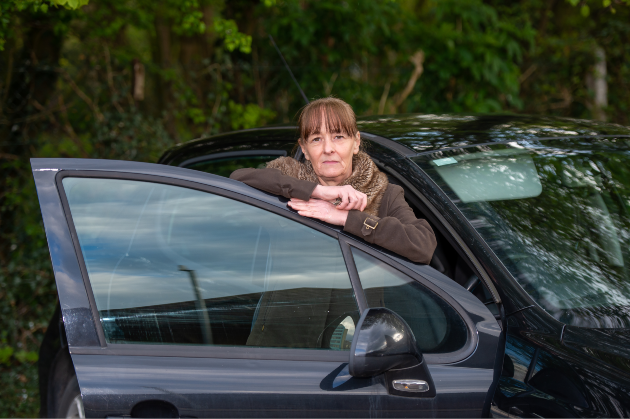
“The chief executive wasn’t used to that style of meeting,” says Sarah-Leigh. “He wasn’t in charge and it knocked him off balance. Instead it was our members who directed what happened. They owned it and spoke really powerfully about how the issue was affecting them.”
The chief executive agreed to work with Parking Eye to turn off specific cameras that were causing problems, until they could be repositioned, and committed to improving the safety of the car park before autumn. He also said he would meet again and that afternoon set up a working group with other trade unions to focus on fixing the problems.
“It was a really good meeting,” says Sarah-Leigh. “But we’ll need to do more to keep the issue alive until it’s adequately resolved.”
“It’s been a few weeks now and we haven’t yet seen progress on those promises,” adds Helen.
"I’ll not let this go until staff are properly supported and these erroneous fines are gone for good.”
What is organising?
Organising is an approach to making positive change happen, where you identify the issues, come together, and bring about solutions on your own terms.
Many different kinds of organisations and groups do different kinds of organising work, and for different reasons. Other health unions, professional bodies and community groups are increasingly exploring this way of working to more intensively equip their members to make change happen.
Just recently, the RCN has begun work to design its own unique national organising model that will serve both our professional and trade union functions.
Some parts of the RCN, including the East Midlands region mentioned here, have been testing elements of organising over the years. Members in Northern Ireland showed incredible capacity and passion for organising through the industrial action they took in December 2019 and January 2020.
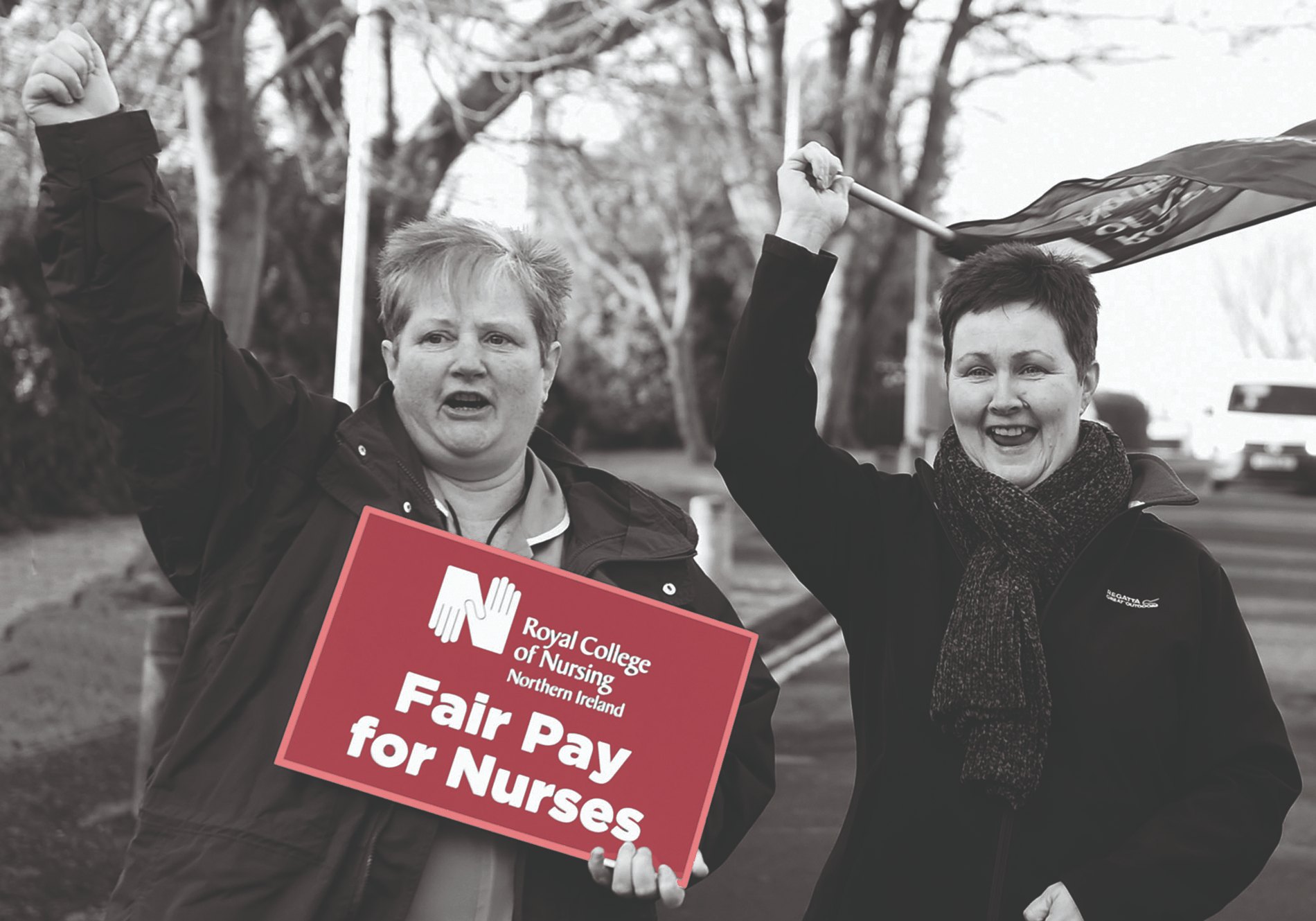
“Organising is about members realising their ability to fight their own causes, recognising their collective strength, and us supporting them to maximise that strength,” says Sarah-Leigh.
“The voice of someone going through something that bothers them is so much more powerful than someone fighting that battle on their behalf. So, for me, it’s about RCN members and staff working as one, in partnership on the same level. And for members to think of it as ‘our RCN’ rather than ‘the RCN’.”
Marie adds: “Effective organising takes time, and involves building strong relationships. It’s about looking at the bigger picture.
“The work we’ve done with Helen is just one example. Imagine that case, and that leader, multiplied by 30 in that trust. That would be 30 strong networks of members who know how to effect change, have had success, and understand the power they have to influence.
"That’s the place we want to get to with the organising model. So that when we have an issue that affects all members, such as pay or safe staffing, they’ll be primed, prepared, and empowered to take action. Imagine the strength of that on a national scale. It would be incredible.”
Want to organise for change?
We’re on a mission to train thousands of RCN members to develop their organising skills to help them fight for whatever issues matter to them, including fair pay.
The first free course is currently underway, but you can sign up to attend the next set of training now.
Stand up for what you deserve. Drive the change you want to see happen.


